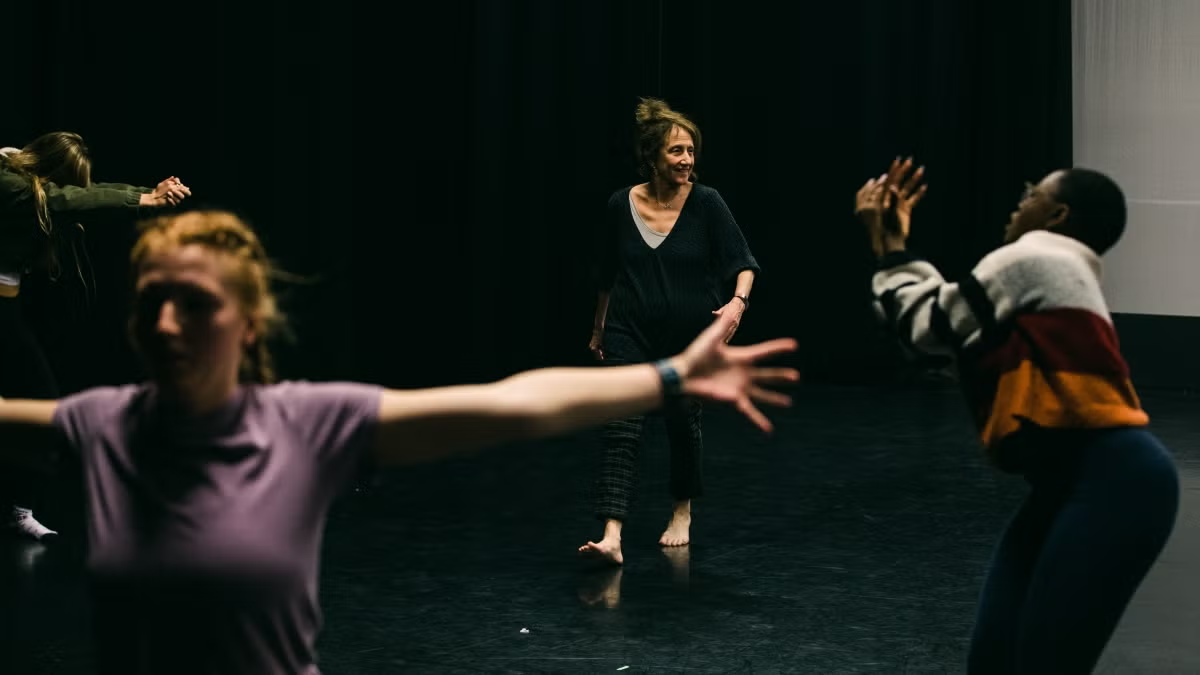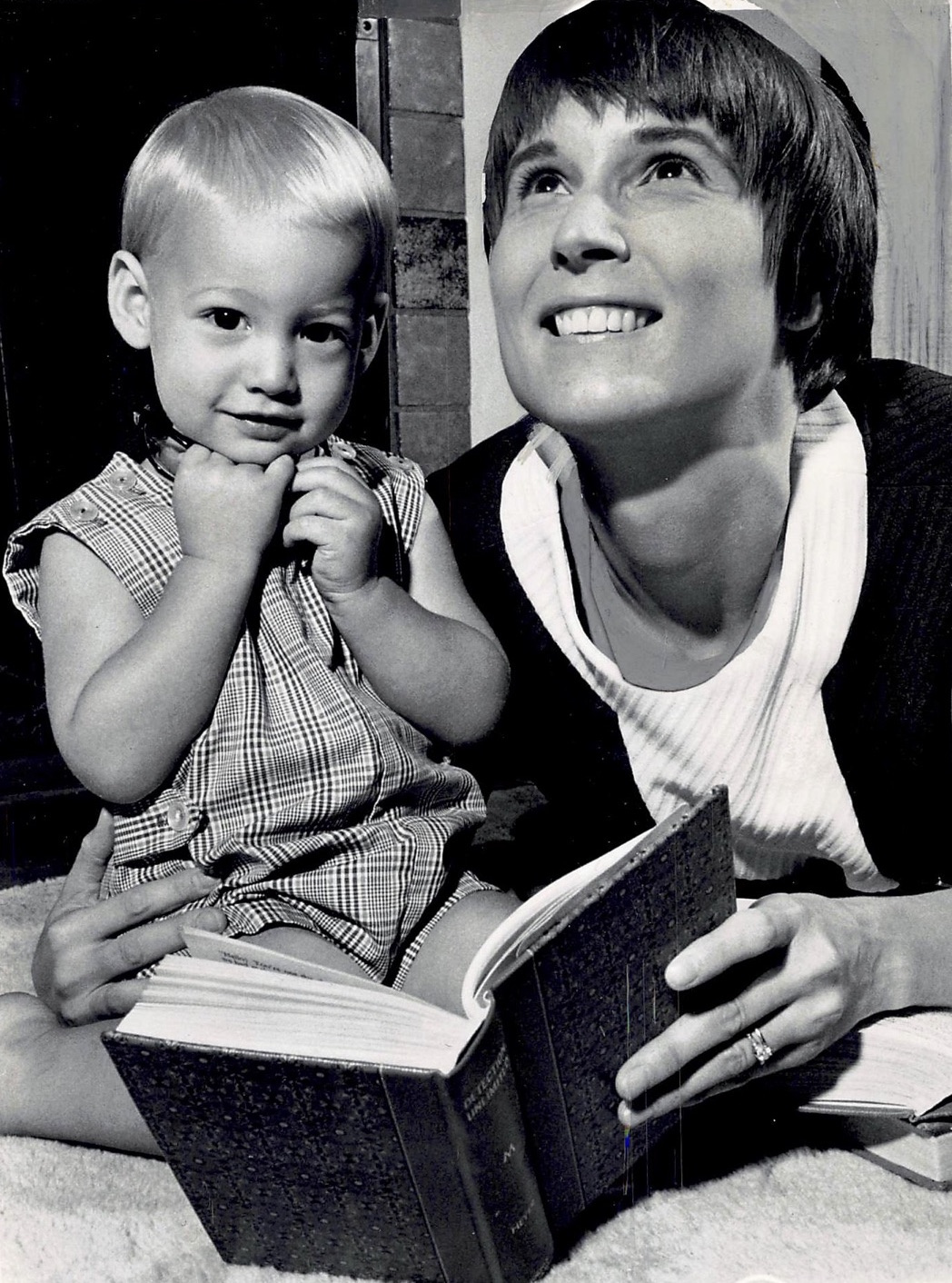All that remains in Retha Warnicke’s Coor Hall office are empty bookshelves, a whiteboard sprinkled with yellow Post-it notes, a dusty unplugged printer and a few remnants on her desk: a phone, a stack of books, a makeup compact, a Morton’s salt shaker and a box of Kleenex. In the middle of the room sits a piece of luggage — a telltale sign that she is ready to vacate.
“I’m 78 years old, have had a long career and I’ve been a busy woman,” said Warnicke, a professor of history in Arizona State University's School of Historical, Philosophical and Religious Studies in the College of Liberal Arts and Sciences. “I’ll miss it, but I’m ready … it’s time.”
Warnicke is considered the first tenured female history professor at ASU. With her retirement on Jan. 1, there will be no more trails to blaze, at least in the classroom.
Small potatoes
When Warnicke started teaching full time at ASU in 1972, the student body was 27,322, Frank Kush led the football team to a No. 13 national ranking, political activist Gloria Steinem spoke at the Tempe campus Memorial Union and The Carpenters played their distinct soft-rock sound to a packed house at ASU Gammage.
“ASU was small potatoes then,” Warnicke recalled. “But one thing that hasn’t changed is that students are still thirsty for knowledge.”
The same could be said about Warnicke, who was born in a Kentucky hut with no electricity or running water. Her family later settled in Evansville, Indiana, where she says she received an excellent public education. However, her academic career was sparked by the 1953 biographical film “Young Bess,” starring Jean Simmons as Queen Elizabeth I.
“Jean Simmons was playing a strong, adolescent 14-year-old at a time when I was an adolescent 14-year-old,” Warnicke said. “It led me to read a textbook on English history and other historical novels.”
Warnicke said she hadn’t given college much thought until a librarian asked her which university she was going to attend.
“College? It never occurred to me to go to college," Warnicke said. "Our family had no means to pay, and I just thought it was out of the question.”
She eventually discovered that Indiana University gave several scholarships to high-achieving, low-income students. Warnicke fit the bill to a T, and she entered college in fall 1957.
Retha Warnicke with son Robert in 1969, the same year she began to lecture at ASU. Three years later, she was the first tenured female history professor at the university. Photo by Tim Rogers/Phoenix Gazette
Enter the professor
The scholarship was well-deserved; Warnicke turned out to be an exceptional student. So much so that in her senior year, instructor Leo F. Solt told Warnicke that she was going to apply to Harvard to become a history professor.
“I had no inclination to become a professor until he said those words,” Warnicke said. The impact of his certainty about her changed her life.
Warnicke vowed one day to do the same for others after she graduated from Harvard with a master’s degree (1963) and doctorate (1969) in history.
But that opportunity didn’t come until many decades later, and she was forced to take baby steps. Her first call of duty in departmental meetings was to keep the minutes. When she had a few more years under her belt, she made the bold decision to wear slacks to the office.
“That got everybody’s attention,” Warnicke said, laughing. So did the fact that after she gave birth to her daughter, she took off only one week of work and was back in time for finals preparation, returning to a standing ovation from her students.
Taking the lead
Almost 20 years after Warnicke was hired, she blazed another path as the first female to chair what was then ASU's history department. Once settled, Warnicke advocated for diversity on the staff and aimed to see more historians from minority backgrounds included in the department. She says her reasoning was simple: “Because we’re good, too.”
One of her first hires was Andrew Barnes in 1996, a tenured history professor from Pittsburgh’s Carnegie Mellon University. He said Warnicke worked hard at building consensus in a department that had many different players.
“There’s natural competition in any department but rather than argue things out, Retha would try to identify people or groups and what they needed and work it out,” Barnes said. “She had strong Midwestern values and struck me as someone who always took responsibility for her actions.”
Retha Warnicke, considered the first tenured female history professor at ASU, also blazed another path as the first female to chair what was then ASU's history department. She retires Jan. 1. This and top photo by Charlie Leight/ASU Now
ASU history Associate Professor Susan Gray said not only did Warnicke promote the underrepresented, she protected them as well.
“I came to ASU from a very small and elite New England liberal arts college in 1991 and, frankly, I was really raw and at sea when I got here,” Gray said. “I really needed Retha’s guidance and support. She mentored me in terms of my tenure and made sure all of my ducks were in a row. She worked hard to make sure everybody got a square deal.”
Gray said Warnicke’s brand of feminism was the exact opposite of what 17th-century English women were taught by men: eyes down, mouth shut.
“That was not Retha’s style at all, and I think she dedicated her career at ASU to ensure that didn’t happen,” Gray said.
Mark Searle, ASU executive vice president and university provost, praised the difference Warnicke made at the university.
“Professor Warnicke led the way for women to become part of the professoriate. Today, nearly half of our faculty are female, and that started with women like Retha who made that possible,” said Searle. “Beyond her trailblazing efforts, Retha has been an outstanding scholar and citizen of the university. Her contributions to our students’ success, to her colleagues and to our community will endure. I wish her the very best in a well-deserved retirement.”
Farewell to an expert
In between her teaching and administrative duties, Warnicke managed to get married, have two children, write seven books on English history and the Tudor monarchy, publish approximately 50 articles and essays, participate in and chair several conferences, and complete nine doctoral candidates and 24 master’s degree candidates. And she never got tired of teaching.
Warnicke said her real joy came when students connected to the material.
“There is still a love for English history because even if we aren’t connected biologically to the people, we are constitutionally connected,” she said. “We have sheriffs, we have counties, part of our Bill of Rights and various forms of local and state government all come from England. We have so much in common.”
With Warnicke's retirement, ASU says goodbye to a world-class historian, Barnes said.
“I don’t think there are more than a handful of people who have a better command of English history between 1485 and 1603 than Retha Warnicke,” Barnes said. “She’s exceptional.”
More Arts, humanities and education

ASU professor’s award-winning book allows her to launch scholarship for children of female shrimp traders in Mexico
When Arizona State University Associate Professor Maria Cruz-Torres set out to conduct the fieldwork for her third book, "Pink Gold," more than 16 years ago, she didn’t count on having major surgery…

Herberger Institute Professor Liz Lerman to be honored as Dance Magazine Award winner
Dance Magazine has announced that Arizona State University Herberger Institute Professor Liz Lerman will be honored as a Dance Magazine Award winner at a ceremony Dec. 2 in New York City.“I…
AI literacy course prepares ASU students to set cultural norms for new technology
As the use of artificial intelligence spreads rapidly to every discipline at Arizona State University, it’s essential for students to understand how to ethically wield this powerful technology.Lance…


